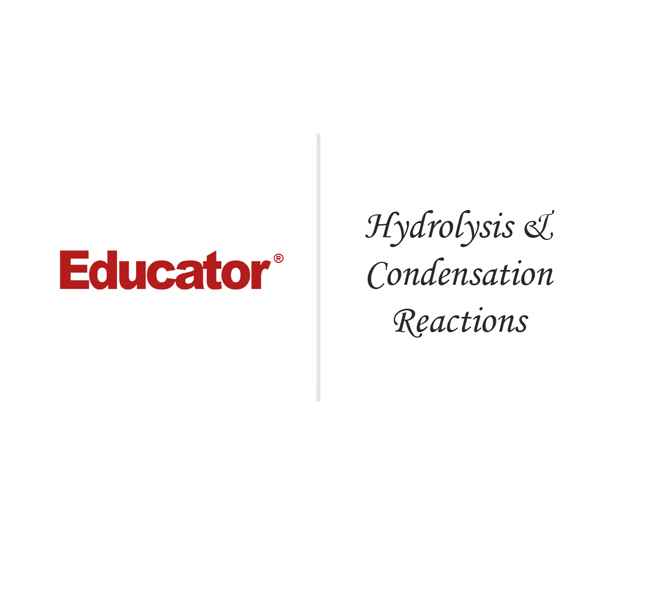Connecting...

For more information, please see full course syllabus of Biochemistry
Biochemistry Hydrolysis & Condensation Reactions
Hydrolysis and condensation reactions are very important in biochemistry because water can actually participate in reactions as well as being a solvent. Hydrolysis reactions use water to break up another molecule, usually by splitting up the water into H⁺ and OH⁻ ions. Condensation reactions occur when two compounds react and produce water as a by-product. For example, in the hydrolysis of ethyl acetate, an ester reacts with water to produce acetic acid and ethanol. In the reverse reaction, acetic acid can react with ethanol to perform a condensation reaction and produce ethyl acetate and water. In real-world circumstances, both reactions take place simultaneously in equilibrium. Other important examples are the hydrolysis of ATP and the hydrolysis of peptide bonds such as alanine and serine.
Share this knowledge with your friends!
Copy & Paste this embed code into your website’s HTML
Please ensure that your website editor is in text mode when you paste the code.(In Wordpress, the mode button is on the top right corner.)
- - Allow users to view the embedded video in full-size.










































 Answer Engine
Answer Engine




1 answer
Wed Nov 4, 2015 9:35 PM
Post by Stephanie Bule on November 2, 2015
Hey Prof. Hovasapian. For the last example, the amino acid serine, shouldn't the side chain be CH2-OH? Wouldn't CH3-OH break the octet rule forming 5 total bonds since it's attached not only to the oxygen from the OH group, but also the carbon on the amino acid backbone? Thanks!
2 answers
Last reply by: Sally Acebo
Tue Jun 9, 2015 5:48 PM
Post by Sally Acebo on June 3, 2015
I think you forgot to put an extra H for the Nitrogen in the last example, the N of the peptide bond only has 2 bonds
2 answers
Last reply by: Archimedes S
Mon Sep 9, 2013 7:52 PM
Post by Archimedes S on September 8, 2013
Hi Prof. Hovasapian. I've always been a bit confused about the term "hydrolysis". In Ochem, most of the hydrolysis reactions we learned about were either acid or base catalyzed. So should we think about hydrolysis as the reaction between the hydroxide or hydronium ions naturally in water, not as the water itself reacting? I hope that makes sense...